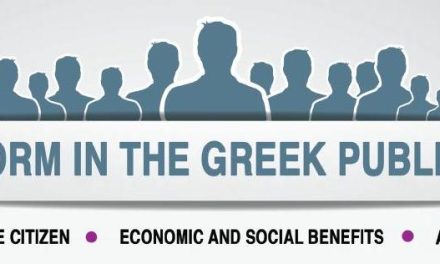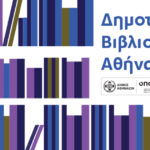The Secretariat for Crisis Management Communication of the Ministry for Digital Policy, Telecommunications and Media has pubished the second issue of its Newsletter on the situation of refugees and migrants in Greece. The Newsletter, which was first published in May, aims at informing public opinion and journalists on all apects of refugee / migration managment.
In the current issue, deputy minister for Migration Policy Ioannis Balafas briefly describes the National Strategy for Reception and Integration now being implemented. This strategy aims to create a “Greek model for intergration” which is based on dialogue and social participation and where Local Government plays a key role as the executive mechanism of integration initiatives. The vision of the National Strategy is reflected in the HELIOS pilot project, which provides services such as language courses, psychosocial support and vocational guidance. Balafas also taks about another project to be implemented during the second half of 2018, involving the registration of the educational and occupational profile of the entire refugee population residing in Greece since 2015, with the objective of more effectively intergrating this population into work and education.
Read the newsletter.
The Newsletter provides, inter alia, facts and figures on:
- The Refugee-Migration flows in the first four months of 2018: According to the National Coordination Center for Border Control, Immigration and Asylum (N.C.C.B.C.I.A) 8,522 persons entered Greece illegally through the Greek-Turkish seaborders in the first four months of 2018, compared to5,307 in the corresponding period of 2017. Irregular inflows through Greek-Turkish land borders amounted to 5,802 in the first four months of 2018, compared to 667 in the corresponding period of 2017, with a significant decline in May.
- The accommodation of 21.002 people within the framework of ESTIA program and the financial assistance to 44.753 eligible refugees by the end of April 2018.
- The examination of first and second instance asylum applications on the Aegean islands and in the mainland: On the Aegean islands, in total, 9,469 applications were submitted in the first four months of 2018 , while for the corresponding period in 2017 they amounted to 6,637, and in total, 2.588 decisions in substance (positive) were issued, against 1.433 for the corresponding period last year.
- The unaccompanied minors: A call for tenders by the Asylum, Migration and Integration Fund for the creation of 2,000 permanent accommodation places for unaccompanied minors is currently in progress. The unaccompanied minors will be included in the National Register of Minors at the National Centre for Social Solidarity (ΕΚΚΑ), while through legislative arrangements the procedure for assigning unaccompanied minors to the care of foster parents will be defined.
- The important changes in the recent Migration Policy Ministry’s law: The law introduces provisions, inter alia, through which deadlines for completion of the examination of asylum applications on the islands at first instance are reduced to 30 days (from 90) and, at second instance to 40 days (from 60). Furthermore, favorable arrangements for vulnerable categories of refugees and migrants are being established.
- The participation of refugee children in education: In total, 7.316 children participated in Reception Structures for Refugee Children Education (RSRCE) and Reception Classes (RC) in the first four months of 2018 and a pilot program to recognize the academic qualifications of the refugees has been launched.
- The initiatives for the integration in the labor market and the security of legal employment conditions for beneficiaries of international protection and asylum seekers: With the contribution of Ministry of Labour, Social Security and Social Solidarity the refugees have registration access to the Hellenic Manpower Employment Organization’s Registry of Unemployed and receive a Social Security Number (SSN).
- The protection of health: The medical, psychological and social support measures for asylum seekers such as the provision of health services within the framework of PHILOS programme in the five Reception and Identification Centers (RIC) on the five islands are recorded.
- The funding projects in the Aegean islands: The North Aegean Region was funded by a total of € 35 million from the national PublicInvestment Programme over the last three years, compared to just € 3 million funding received in 2014.Apart from that, the original budget of the North and South Aegean Sea Special Development Programmes has more than doubled to € 102 million. Additional initiatives totaling €77 million are funded by other programmes run by the Ministry of Economy.
I.L.












